Three news stories summarized & contextualized by analytic journalist Colin Wright.
Sierra Leone declares national emergency on drug abuse
Summary: Sierra Leone’s President has declared a national emergency due to high levels of death linked to a drug locally referred to as “kush,” which is a combination of marijuana, tentanyl, and tramadol.
Context: This drug is cheap, highly addictive, and has reportedly killed hundreds of people and left dozens psychiatrically damaged in the four years or so its been circulating around the country; kush is reportedly especially popular with young, unemployed people, of which there are many in Sierra Leone, and it apparently spread to the country from neighboring Liberia, which—according to research coming out of Nigeria—has been seriously impacted by the drug, though both nations’ governments have had trouble addressing the issue due to a lack of resources and insufficiently sturdy social systems.
—Reuters
Israel withdraws troops from southern Gaza as war hits 6-month mark
Summary: About half a year after Hamas launched a sneak attack on Israel, triggering a massive counterattack from Israeli military forces into the Gaza Strip, the Israeli military has reportedly pulled all but one brigade from southern Gaza, where most of the fighting is now occurring, as officials from various interested nations meet in Cairo to discuss a long-lasting ceasefire.
Context: Those peace talks—attended by officials from the US, Egypt, Qatar, Israel, and Hamas—kicked-off over the weekend, and the ambition is to establish a temporary ceasefire in the region, with the hopes that said ceasefire would evolve into a permanent next-step state of peace, though hurdles remain as the issue of Israeli hostages still held by Hamas continues to complicate discussions, as do questions about what the region will look like, who will govern and provide security, and to what degree proxies for Iran, like Hamas, will have a say in how this all plays out.
—The New York Times
Zimbabwe launches new gold-backed currency
Summary: Zimbabwe’s central bank launched a new currency last week, which is backed by gold and meant to help stabilize the country’s economy and tame long-ballooning inflation.
Context: The Zimbabwean dollar has lost nearly 100% of its value against the US Dollar over the past year as ongoing and widespread poverty, high levels of unemployment, and intense, consistent drought have amplified existing economic issues, and the introduction of this new currency, Zimbabwe Gold, or ZiG for short, is meant to simplify things by tying the number of notes in circulation to gold the government has on hand, preventing over-printing; the ZiG was introduced as part of a larger effort to address inflation rates that hit 55% in March, and which have caused the country’s previous currency to trade at around 30,000-to-1 against the USD, and as much as 40,000-to-1 on the black market.
—Barron’s
US-based Big Tech companies are sitting on a lot of cash, in part because of aggressive regulatory activity targeting monopolistic behavior which has made acquisitions (which is how they typically would have spent these stockpiles) fraught.
—The Wall Street Journal
2
Number of US states that reported increases in local COVID-19 infections, according to the CDC.
The agency also reported that infections were dropping in 29 states and territories, though forecasts predict as many as 3,400 daily COVID-related hospital admissions in late-April, and it’s worth noting that this disease is still killing people in relatively high numbers and that many of the tracking mechanisms that were formerly in place are no longer funded or as fully funded as before—so tracking figures are not as robust as they were a few years ago.
—The Washington Post

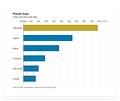




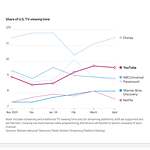
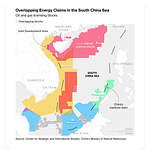
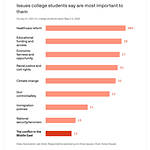
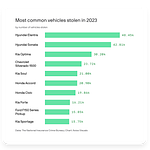
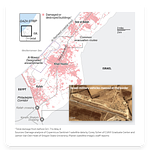



One Sentence News / April 9, 2024